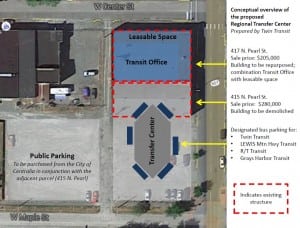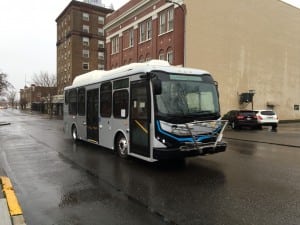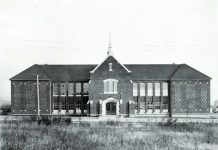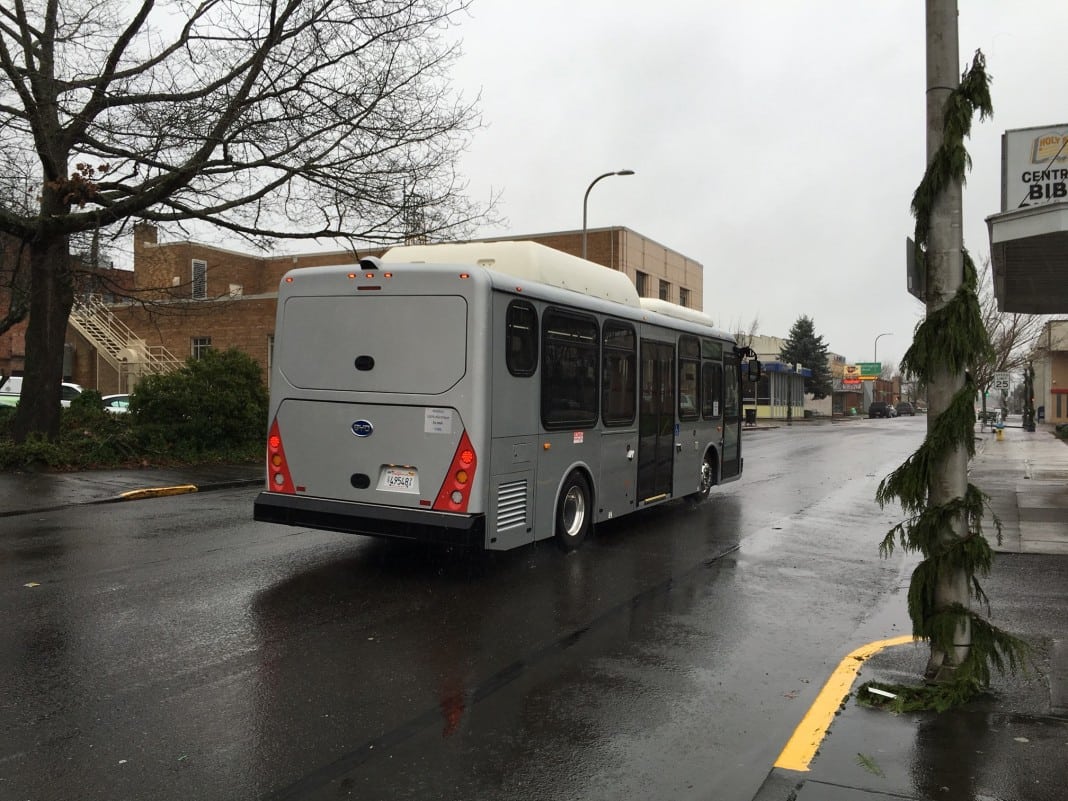Submitted by Twin Transit
Recently the management staff and Board of Directors at Twin Transit have been busy writing a few large checks—investments in the future. Purchases for property and a new electric bus are intended to greatly improve the quality and sustainability of transit service in our community.

Over the past few weeks the Transit Board authorized $485,000 be spent on the acquisition of two pieces of property in downtown Centralia for the development of a Regional Transit Center. For several decades Twin Transit has relied upon a casual agreement with the City of Centralia to use the Amtrak train station as a de facto bus hub—and while the Depot has worked adequately over the years, the new location along Pearl Street is strategically positioned closer to City Hall and the Centralia Police Station. One of the major drawbacks to the Amtrak train station is the inability for Twin Transit to maintain a staff presence and monitor behavior. Once complete, the new Regional Transit Center will provide leasable commercial space to businesses and non-profits as well as bus parking for vehicles from other service providers operating in nearby Thurston and Grays Harbor counties.

To help save money and keep annual operating costs low, the Transit Board also authorized $270,000 of local funds be spent on a 100% electric bus. To no surprise, electric buses are becoming an increasingly popular method of stretching public dollars for bus service. Twin Transit believes our flat roads, below average energy costs and temperate climate provide ideal conditions for electric vehicles to perform.
Back in December our community received demonstrations from Green Power Bus and BYD, two manufacturers of electric buses. While it is true that electric vehicles are still somewhat new and uncertain, the potential savings on fuel alone is too attractive to ignore. Based on a life of 700,000 miles it is estimated that a single electric bus can save over $400,000 in fuel expense compared to a diesel powered vehicle.
Twin Transit received a grant from the Federal Transit Administration that will pay for over half of the purchase price. The 30-foot bus from Green Power is expected to arrive in late 2016 and be placed into service in early 2017. If successful, Twin Transit hopes to receive additional grants that will allow for the investment in more electric buses.











































